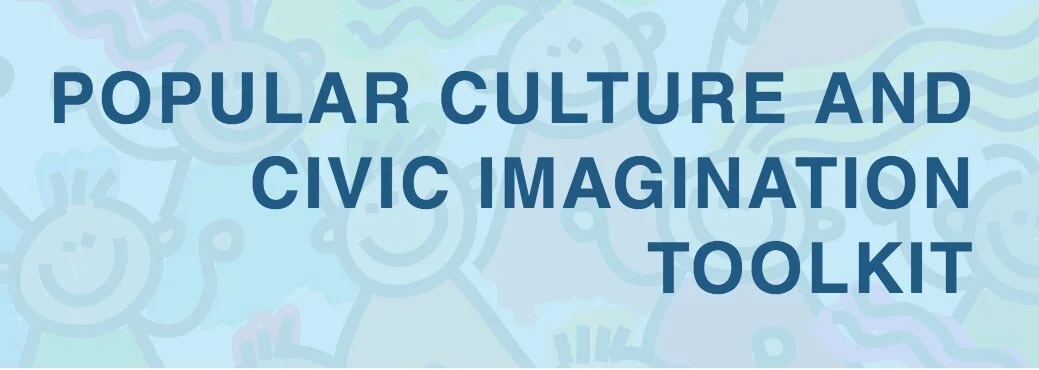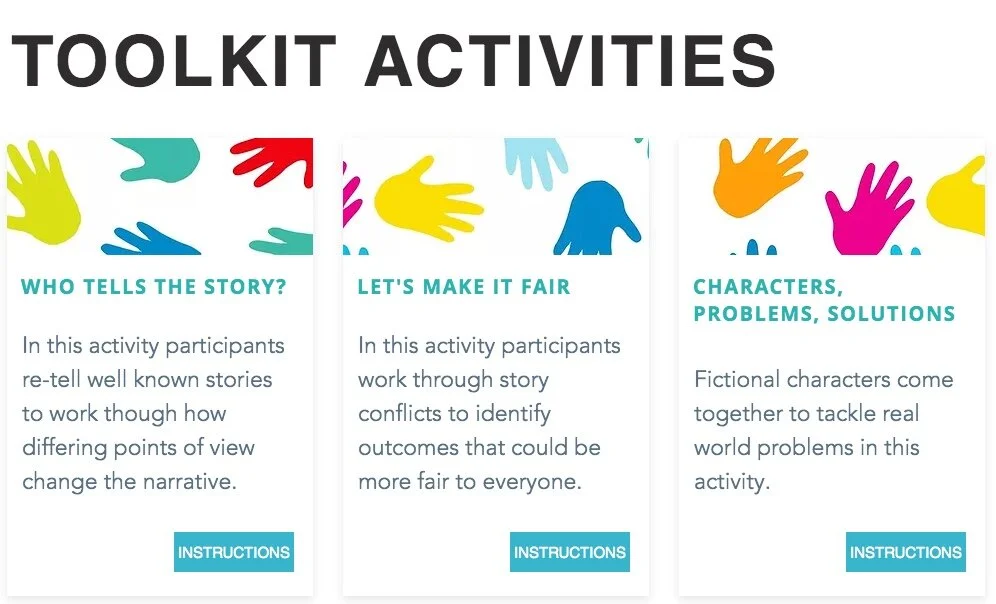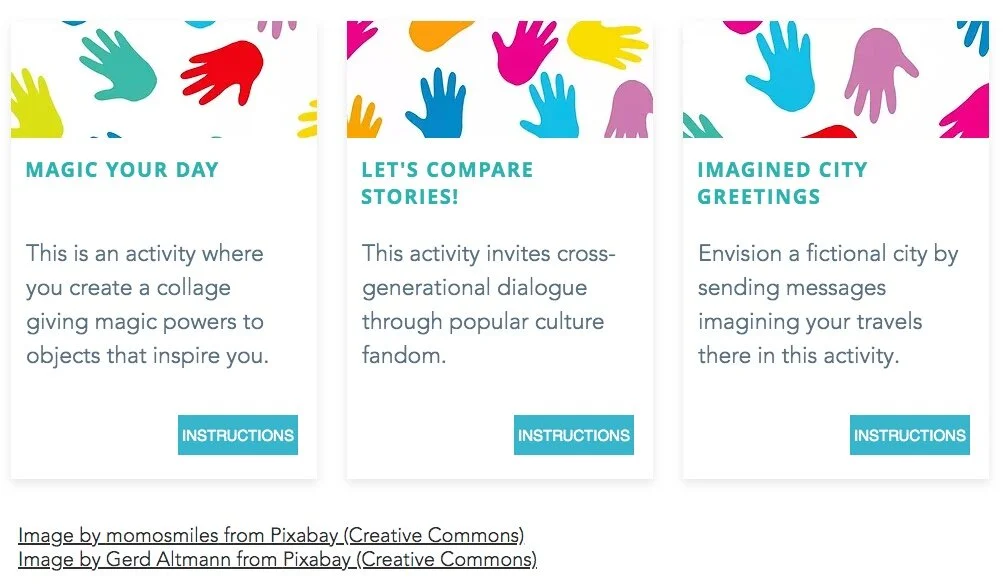Launching our Popular Culture and Civic Imagination Toolkit
/Welcome to our Popular Culture and Civic Imagination Toolkit! Here we tap the stories, TV shows, games, movies and folk stories we love (and love to hate) to activate our imaginations as we work through the social challenges our communities face. Our playful easy to do activities engage popular culture, imagination and issues of collective concern, tackling questions like: How do we want to live with one another? How do we resolve conflicts in our community? How do we know what’s fair for us and for others? How do we work together to solve big problems?
The toolkit is intended for a broad age group - parents and children (5+), peer-groups, those working in educational settings and really anyone interested in watching, remixing, creating, and having fun with popular culture!
Our number one goal here is to help adults and children (and others) to have fun around shared media experiences, moving us beyond the negative focus on “screen time” to a more generative mode of co-creating our culture. These activities are shaped by concepts such as perspective taking and emotional intelligence, but more broadly, designed to help young people to think about how they live in communities and physical spaces with other people, how they work together to achieve a social order that is fair to all, how they might learn to appreciate each other’s different perspectives and experiences, and how they might look at their physical surroundings, both places and things, in new, even magical, ways. We also see these activities as an childhood entry into media literacy (understood not as a school subject but as part of our everyday lives as media consumers and fans.)
Each activity in the toolkit can be completed as a stand-alone unit. Unless otherwise noted, these activities here emerged from brainstorming sessions with the members of the Civic Paths research group.
This is a work in progress and we welcome feedback and new activity suggestions! Do you have activities that you would like to submit to the Toolkit? Please, reach out to us via this form.
You can also download the printer friendly version of this toolkit here.





